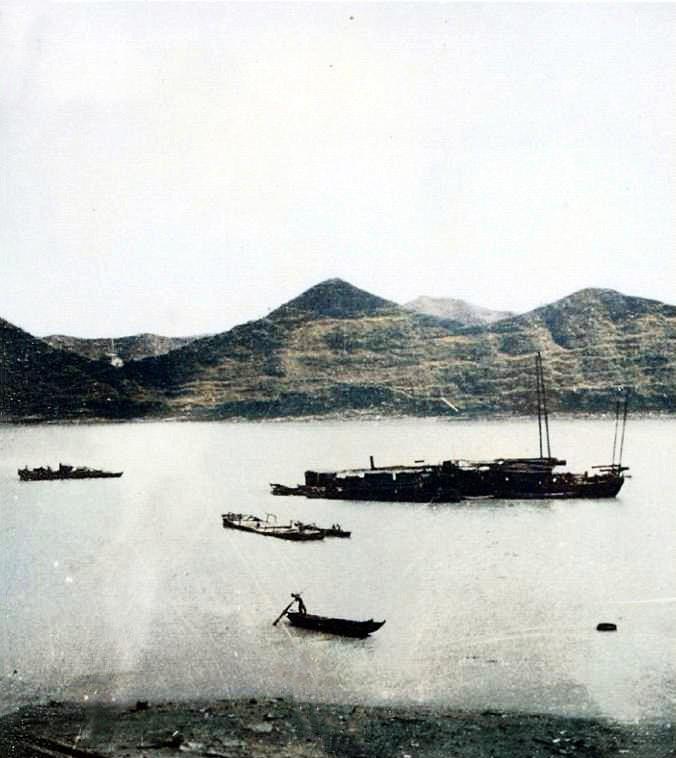
Yichang is an important city in the Yangtze River Basin, China's largest water conservancy project is built in Yichang, because the Yangtze River from Chongqing all the way is a lofty mountain, out of the Zigui is a horse Pingchuan, so the construction of a dam here is the most ideal location.
In the military sense, this is also an important city, because it is the throat of the entry into Bashu, only by controlling Yichang can there be a forward base to attack Bashu, during the War of Resistance Against Japan, after the Nationalist government moved the capital to Chongqing, the Japanese invaded All the way to Yichang.
Because there was a large mountain barrier between Yichang and Chongqing, the mechanized troops of the Japanese Kou had no advantage, so the pace of the Japanese invasion to the southwest was finally stopped in Yichang.
In June 1940, the Japanese occupied Yichang, and a group of Japanese troops was marching, and the buildings around them had been destroyed in the war.
After the destruction of the war, the city of Yichang is already devastated, the buildings on both sides of the street have been bombed to the point where only a frame remains, and the slogans and banners of the traitor organization can be seen on the side of the street.
A group of Dangyang traitors and Japanese invaders took a group photo in front of the puppet government in Dangyang, and it can be seen that the white-clad man standing in the front is very arrogant, and from his dress, it can be seen that he is a Chinese, and this kind of people who have forgotten their ancestors were still very many in that period.
After taking pictures with the traitors, the Japanese and the traitors came to the streets of Dangyang, where people did not know why and were not afraid of these invaders.
There were still a few children on the street watching, and to be honest, this scene was really very strange, why were these local people not afraid of the Japanese?
Guan Yu Temple in Dangyang
A Japanese Kou stands outside the Guan Yu Temple in Dangyang to take a photo
The Japanese Kou, who took a photo in front of the Guan Yu Temple, took a group photo outside with three other Japanese officers
The so-called Women's Peace Promotion Association was established by the Japanese invaders in Dangyang
The Japanese forced a large number of local people to build roads
A scene on the yichang river, there are also fortifications built by the defenders on the shore
Yichang Moji Mountain, known as the pyramid of China, was fortunate that we won the final victory in the War of Resistance Against Japan that year, otherwise these Japanese would have been flaunting their might on the land of our country for a long time.